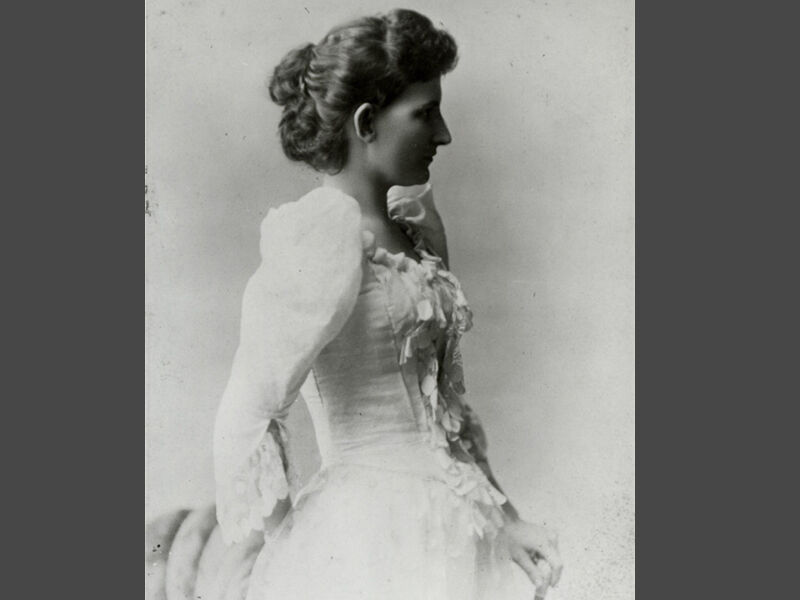Mary Kate Hunter, born November 8, 1866, at Brushy Creek, Texas, pursued many interests, including poetry, history, and music, yet she’s best remembered for leading efforts to found the Palestine Carnegie Library (1914) and helping women gain the right to vote (1920).
Hunter attended Palestine Female Academy and Sam Houston State Teachers College (now Sam Houston State University). She traveled widely, studying classical music in Boston, Chicago, and Berlin. She briefly taught public school in Mexia and Palestine, but taught piano to scores of Palestine youth until retiring in 1941.
For decades, Hunter participated in women’s clubs, which lead social reforms. She was a charter member of the Palestine Self Culture Club and served as delegate to the first meeting of the Texas Federation of Women’s Clubs in 1898.
Hunter is best-known for helping found the Palestine Carnegie Library as a free public library. A grant of $15,000 from the Carnegie Foundation and support from the City of Palestine funded construction of the building, which housed the city’s library for 71 years and is one of 13 remaining Carnegie Libraries in Texas.
Hunter also campaigned for women’s suffrage, serving as president of the Palestine Equal Suffrage Association and as Vice President of the Texas Equal Suffrage Association from 1915-1916. After women gained the right to vote in 1920, she taught voting procedures and methods for evaluating candidates.
Traveling to Washington in 1821, Hunter accepted the task of starting a local unit of the Woman’s National Foundation. She organized the group in her home with 52 charter members to pursue the study of local history.
Hunter later organized a chapter of the Fort Houston Daughters of the Republic of Texas in 1927, which collected rare Texas history books and donated them to the library.
Hunter belonged to the Poetry Society of Texas and published a volume of poetry titled Vision in 1836. She also served on the boards of the Texas State Library and Historical Commission and the Texas State Historical Association. She worked on an early history of Anderson County for many years, collecting oral histories from scores of early residents.
Hunter’s other literary endeavors include publishing poetry in well-known newspapers and magazines, serving as society editor of The Palestine Daily Advocate, and as publisher of The Observer, a society and current events review.
Hunter died April 14, 1945, while preparing for Palestine’s centennial celebration. The city celebrated its centennial the following year, dedicating it to Hunter. She donated many volumes of her writings to the Palestine Public Library, where they are used as reference material for Texas history.
The National Register of Historic Places recently added Palestine to a database of 1,000-plus places called “Where Women Made History” in 2020, the 100th anniversary of the 19th Amendment, which granted women the right to vote in 1920. The campaign is accepting voluntary nominations through the end of 2020.


